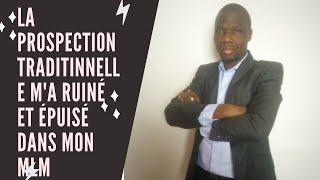Top mainland e-commerce live-streamer, Li Jiaqi, dubbed the “Lipstick King” is back under the spotlight after appearing in the country’s popular reality singing show Call Me by Fire.
The 32-year-old influencer’s attempt at a comeback, following a series of controversial public outbursts and a formal investigation, has received a mixed reception.
Li’s decade-long journey from cosmetics salesman in a second-tier city to China’s top influencer with hundreds of millions of followers and on to television stardom, was tainted by controversy.
In 2016, the former L’Oréal beauty adviser from Nanchang in eastern China’s Jiangxi province, stood out in a competition held by the beauty brand and multi-channel network company MeiOne.
Soon after, he became an e-commerce live-streamer in Shanghai.
Li shot to fame as the “Lipstick King” in 2018, after he sold 15,000 lipsticks in five minutes, winning a contest against Jack Ma, founder of Alibaba which owns the South China Morning Post.
He quickly became the top live-streamer on Alibaba’s e-commerce platform Taobao, promising his audience the lowest prices.
His catchphrases, which included “All girls” and “Oh My God”, appeared to be especially persuasive in his high-pitched voice that sounded sincere.
Li’s experience as a beauty adviser helped him win the hearts of China’s female shoppers.
He tried lipsticks on his own lips every evening during live-streaming, and once applied 189 lipsticks in one day.
“My lips do not belong to me any more,” he said.
Li generated 10.6-billion-yuan (US$1.5 billion) first-day sales during the Double 11, China’s biggest shopping festival, in 2020.
He attracted a record 250 million viewers in one day. The first-day sales rose to 11.5 billion yuan in 2021 and 12.3 billion yuan in 2022.
Li, who is originally from central China’s Hunan province, obtained hukou, or permanent residency status, in Shanghai under the city’s “special talent” scheme.
However, his career took a turn for the worse after a series of clumsy, thoughtless outbursts, which offended many people.
During a live-streaming session in September last year, Li lashed out at a customer who complained that a 79-yuan (US$11) eyebrow pencil from Chinese make-up brand Florasis was too expensive.
He arrogantly insulted the customer, saying: “Have you got a pay rise after all these years? Did you work hard enough?”
Online observers later calculated that the price of the eyebrow pencil per gram was twice that of gold, which was 468 yuan (US$66) at the time.
Li was heavily condemned for his outburst and was accused of “forgetting where he had come from”.
His Weibo followers dropped from 30 million to 29 million in one day.
He made a tearful apology during a live-stream two days later, saying: “I shouldn’t have judged anyone in my audience. I’m sorry that I let you down.”
Li’s mother once said in an interview that, when her son was admitted to Nanchang University to major in dance, she could not afford the 20,000 yuan (US$2,800) tuition fees, so he left without getting a degree.
The shopping celebrity triggered two previous backlashes when he called a pregnant woman “ugly”, and made a sexual joke about mainland actress Yang Mi who was a guest on his live-stream, which offended online observers.
He was also accused by sales people on other e-commerce platforms of “holding brands hostage” and making them commit to the lowest price on his channel. Shanghai’s anti-monopoly office investigated the accusations.
The television show Call Me by Fire, which is entering its fourth season this year on China’s Mango TV station, features veteran male stars singing and competing in groups.
Li said during a live-stream that he attended the show to “make money and send red packets” to his audience.
He also brought the celebrity friends he had made during the show to his live-streaming sessions.
However, his comeback attempt was not as well received as he had expected.
In a poll by a Douban user, Li received the highest “unfavourable” votes of the 34 celebrities who appeared on the show.
“I’m not qualified to watch the show – not working hard enough,” one person said sarcastically online, referring to his insult to the woman which sparked the eyebrow pencil scandal.
The 32-year-old influencer’s attempt at a comeback, following a series of controversial public outbursts and a formal investigation, has received a mixed reception.
Li’s decade-long journey from cosmetics salesman in a second-tier city to China’s top influencer with hundreds of millions of followers and on to television stardom, was tainted by controversy.
In 2016, the former L’Oréal beauty adviser from Nanchang in eastern China’s Jiangxi province, stood out in a competition held by the beauty brand and multi-channel network company MeiOne.
Soon after, he became an e-commerce live-streamer in Shanghai.
Li shot to fame as the “Lipstick King” in 2018, after he sold 15,000 lipsticks in five minutes, winning a contest against Jack Ma, founder of Alibaba which owns the South China Morning Post.
He quickly became the top live-streamer on Alibaba’s e-commerce platform Taobao, promising his audience the lowest prices.
His catchphrases, which included “All girls” and “Oh My God”, appeared to be especially persuasive in his high-pitched voice that sounded sincere.
Li’s experience as a beauty adviser helped him win the hearts of China’s female shoppers.
He tried lipsticks on his own lips every evening during live-streaming, and once applied 189 lipsticks in one day.
“My lips do not belong to me any more,” he said.
Li generated 10.6-billion-yuan (US$1.5 billion) first-day sales during the Double 11, China’s biggest shopping festival, in 2020.
He attracted a record 250 million viewers in one day. The first-day sales rose to 11.5 billion yuan in 2021 and 12.3 billion yuan in 2022.
Li, who is originally from central China’s Hunan province, obtained hukou, or permanent residency status, in Shanghai under the city’s “special talent” scheme.
However, his career took a turn for the worse after a series of clumsy, thoughtless outbursts, which offended many people.
During a live-streaming session in September last year, Li lashed out at a customer who complained that a 79-yuan (US$11) eyebrow pencil from Chinese make-up brand Florasis was too expensive.
He arrogantly insulted the customer, saying: “Have you got a pay rise after all these years? Did you work hard enough?”
Online observers later calculated that the price of the eyebrow pencil per gram was twice that of gold, which was 468 yuan (US$66) at the time.
Li was heavily condemned for his outburst and was accused of “forgetting where he had come from”.
His Weibo followers dropped from 30 million to 29 million in one day.
He made a tearful apology during a live-stream two days later, saying: “I shouldn’t have judged anyone in my audience. I’m sorry that I let you down.”
Li’s mother once said in an interview that, when her son was admitted to Nanchang University to major in dance, she could not afford the 20,000 yuan (US$2,800) tuition fees, so he left without getting a degree.
The shopping celebrity triggered two previous backlashes when he called a pregnant woman “ugly”, and made a sexual joke about mainland actress Yang Mi who was a guest on his live-stream, which offended online observers.
He was also accused by sales people on other e-commerce platforms of “holding brands hostage” and making them commit to the lowest price on his channel. Shanghai’s anti-monopoly office investigated the accusations.
The television show Call Me by Fire, which is entering its fourth season this year on China’s Mango TV station, features veteran male stars singing and competing in groups.
Li said during a live-stream that he attended the show to “make money and send red packets” to his audience.
He also brought the celebrity friends he had made during the show to his live-streaming sessions.
However, his comeback attempt was not as well received as he had expected.
In a poll by a Douban user, Li received the highest “unfavourable” votes of the 34 celebrities who appeared on the show.
“I’m not qualified to watch the show – not working hard enough,” one person said sarcastically online, referring to his insult to the woman which sparked the eyebrow pencil scandal.
- Catégories
- E commerce Divers














Commentaires